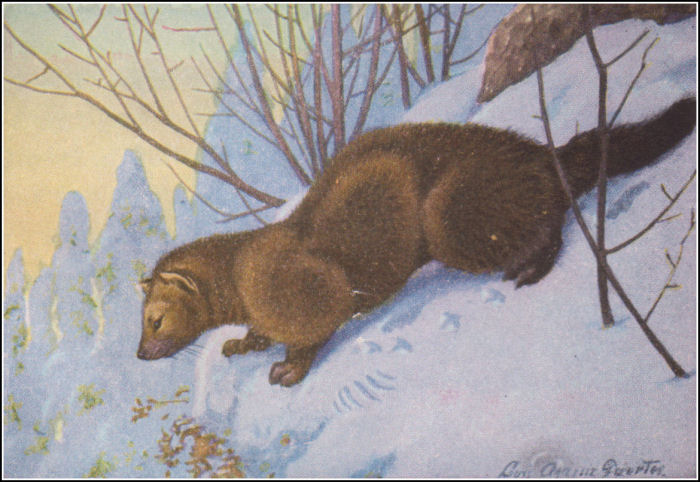READING-LITERATURE: Third Reader by Harriette Taylor Treadwell
The Man and the Serpent
Once a serpent, who was going through a hedge, was caught in a snare. The more he
struggled, the tighter he drew the cord about his neck. There was no way of
escape. He cried out to a man who was passing by, "Help me or I shall perish."
The man took pity on him and said, "I
will release you if you will promise to
do me no harm." The serpent made a solemn promise not to harm him at that time
or any time thereafter. So the man loosed the noose and set the serpent free.
The serpent kept his promise for a time, but one day he became very hungry
and struck at the man to kill him. The man started back and cried, "Have you
forgotten your promise? Did you not promise to do me no harm?"
Whereupon the serpent answered, "I am hungry and my hunger compels me to kill
you. Hunger knows no law."
"Well, at least," said the man, "let me live until we meet someone who will
judge fairly between us."
The serpent agreed and they went on together till they met a raven and his
son. The serpent told them of his hunger and the raven, hoping to get his share,
said, "Yes, hunger frees the serpent from his oath."
But the man said, "Shall a person who
lives by robbing be a judge, and shall
there be but one judge? Let us submit this matter to three or four and hear them
all."
The serpent agreed to this and they went on till they met a wolf and a bear.
And the bear and the wolf both said, "Yes, hunger knows no law." Then with a
terrible hissing the serpent darted at the man.
But the man leaped aside and said, "Would you kill the friend who saved your
lif e ?"
The serpent replied, "Twice have the judges spoken and twice was the judgment
against you."
The man replied, "They are thieves themselves. Let us go to your king, whom
you all trust. What he says I will abide by."
Then the man, the serpent, the bear, the wolf and the ravens came to the
court of the king and told their story. The king was greatly troubled. He said,
"It is hard to condemn the man, for he has been kind;
but still I have pity for
the serpent. He must have food to save his life."
So the king called his court together, but no one was able to judge the case.
Then he asked Reynard the fox to give his judgment. Reynard heard both sides.
Then he said, "First let me see the serpent in the noose just as the man found
him." So they all went to the hedge, and the serpent was again tied in the
noose.
Then the king said, "Now, Reynard, what judgment will you give?"
Reynard replied, "O, King, they are now in the same place they were before
the promise was given. Let the man loose the serpent if it now please him,
knowing that hunger releases the serpent from his promise."
The king honored Reynard's judgment, and said, "Your wisdom has saved the
honor of the court."
| 